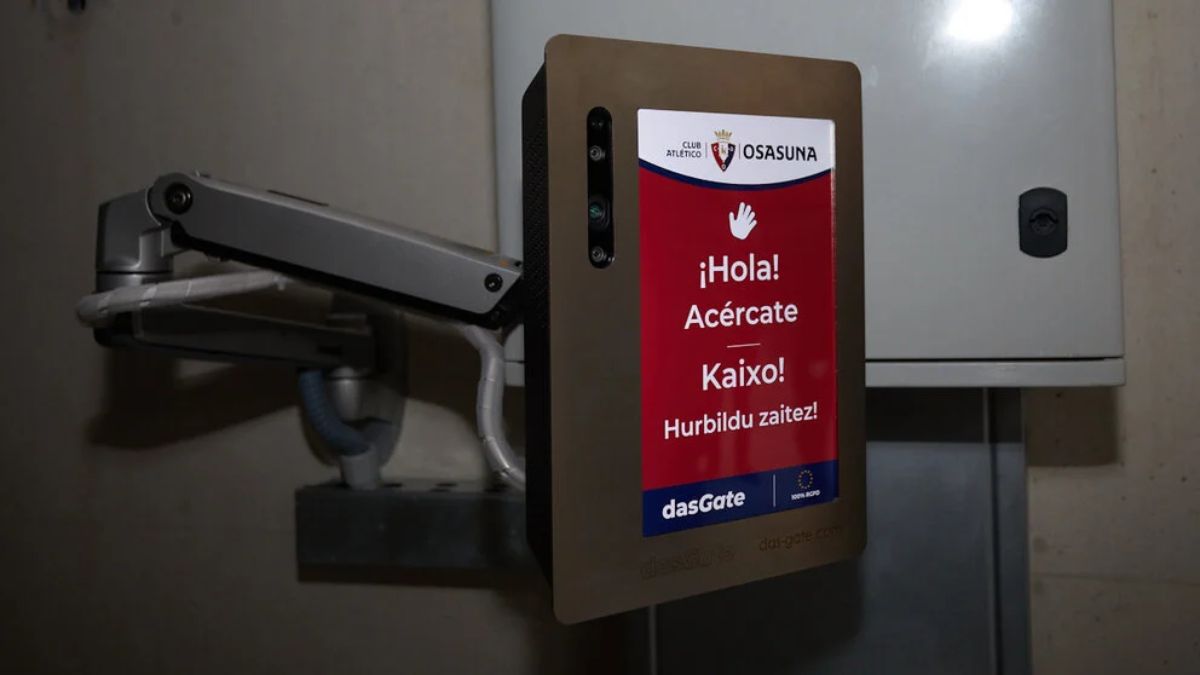Full article
Osasuna will take its defence before the Audiencia Nacional against the AEPD for facial recognition
Club Atlético Osasuna has decided to appeal to the National Court to defend the use of facial recognition technology in the access to its stadium, El Sadar. The club has filed an administrative appeal against the resolution of the Spanish Data Protection Agency (AEPD), which considers that the system implemented by the club could violate current privacy regulations.
This follows a warning from the AEPD, which urged Osasuna to stop using this system, arguing that facial recognition involves the processing of biometric data that must comply with strict legal requirements. The agency considers that the implementation of this technology lacks sufficient legal basis and could compromise the privacy of fans attending the stadium.
Osasuna's position
The Navarran club defends the fact that the facial recognition system implemented at El Sadar has the main objective of improving security at the stadium and speeding up the entrance of members. According to the club, the technology allows for faster and more efficient identification, which reduces risks and avoids fraud in the use of season tickets and season tickets, which is very common in many stadiums in Spain.
They also argue that facial recognition is a necessary tool to control access and ensure safe access to the stadiums, as manual identification can create queues and operational difficulties.
The conflict with the AEPD and the appeal to the Audiencia Nacional (National Court)

The AEPD argues that the implementation of this type of technology involves the processing of biometric data, considered especially sensitive according to the General Data Protection Regulation (RGPD). Therefore, the agency insists that this type of system can only be applied under very specific circumstances: as long as there is a solid legal basis and adequate guarantees to protect the rights of users.
In view of this position, Osasuna has decided to file its appeal before the Audiencia Nacional, arguing that the system has been designed in compliance with all privacy regulations and with the consent of the users. In addition, the club argues that other sports entities and companies have implemented similar technologies without receiving sanctions or warnings from the AEPD.
A key precedent for... the future of Spanish football?
The resolution of this dispute could set an important precedent in the relationship between data protection and security at sporting events. If the Audiencia Nacional rules in favour of Osasuna, this could open the door for other clubs to adopt facial recognition systems for access management. If not, it would reinforce the AEPD's position on the need to establish strict limits on the use of biometric data at sporting events.
Comments
Related links
Main menu












